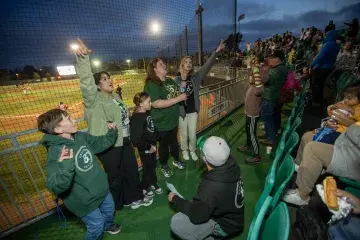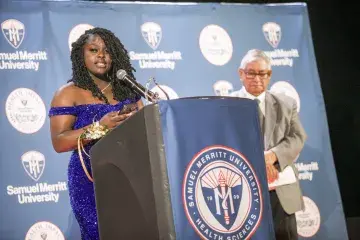US or Japan: Students Explore the Pros and Cons of Health Care Abroad

Tell us your story. Tell us about a friend. We want to hear about students, alumni, and faculty who are breaking the mold and living SMU's mission.
In Introduction to Nursing, we learned that the American health care system is ranked 37th out of 191 countries in the World Health Organization (WHO). It was disheartening and embarrassing. The ranking is based on five factors: life expectancy, population health inequality, health system responsiveness to patients’ needs, public access to health care, and financial distribution (sharing of financial costs among citizens). The U.S. health care system is the most expensive, while being one of the least effective. In contrast, Japan’s health care system ranks 10th.
Is it any wonder then that Samuel Merritt University (SMU) created an exchange program with Seirei Christopher University in Hamamatsu, Japan starting back in 2014 as a way for students and faculty at both universities to learn about nursing, health care, and each other’s culture? Over the years, students from Samuel Merritt and Seirei Christopher have attended group seminars and travelled internationally as part of 10-day exchanges to observe their foreign counterparts and see different clinical settings with the aim of “improving patient care and quality and encouraging innovation.”
Travel to Japan for 10 days
Last month, from March 14–22, SMU families hosted nine Japanese nursing students and two faculty in their homes. We led them on tours of SMU’s Oakland campus and visited partnering facilities such as a children’s hospice and a nursing home. We also took them sightseeing in San Francisco. In their closing remarks at the end of their trip, the Japanese students and faculty mentioned that they were interested to learn about the role of nurse practitioners in the American system, were surprised that nurses are able to delegate tasks here rather than simply take orders from physicians, and were impressed by the genuine care provided to children in hospice.
For our part of the exchange in early June, I and eight other SMU students from the ABSN and BSN programs and three faculty will travel to Hamamatsu, Japan for 10 days. We’ll stay with host families for a night and at a hotel the remainder of the time. I hope to learn more about nursing and health care in Japan as well as the culture in general. To learn about different international health care systems firsthand is an incredible opportunity, and I hope it will help me explore the different factors in health care that separate Japan from the U.S. in the WHO rankings.


